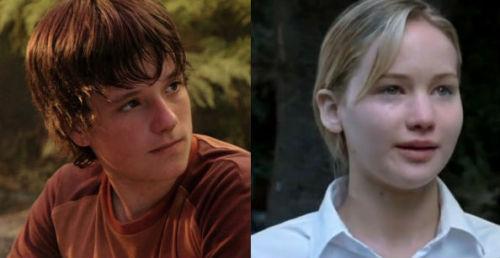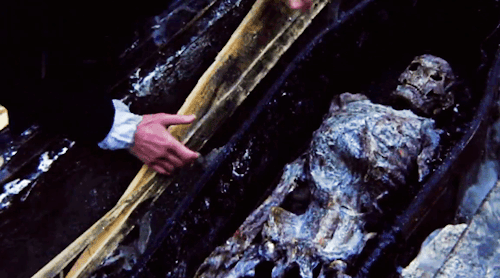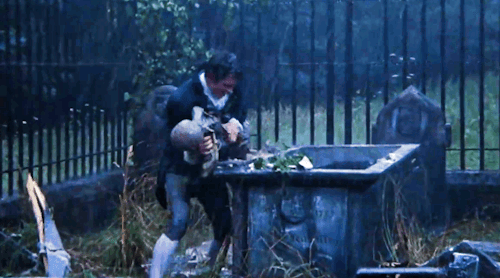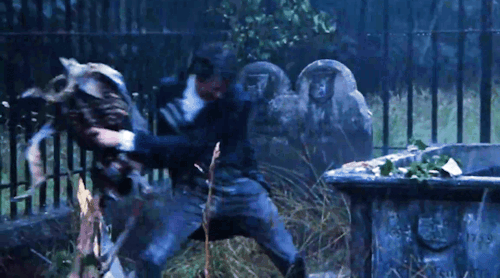The Devil's Wheel
The Devil's Wheel
The Devil’s Wheel
“If you say yes,” said the Devil, “a single man, somewhere in the world, will be killed on the spot. But three million dollars is nothing to sneeze at, missus.”
“What’s the catch?” You squint at him suspiciously over the red-and-black striped carnival booth. You’re smarter than he thinks you are– a devil deal always has a catch, and you’re determined to catch him before he catches you.
“Well, the catch is that you’ll know you did it. And I’ll know, too. And the big man upstairs’ll know, I ‘spose. But what’s the chariot of salvation without a little sin to grease the wheels? You can repent from your mansion balcony, looking out at your waterfront views, sipping a bellini in your eighties. But hey, it’s up to you– take my deal or leave it.”
The Devil lights a cigar without a match, taking an inhale, and blowing out a cloud of deep, sweet-smelling tobacco laced faintly with something that reminds you of rotten eggs. If he does have horns, they’re hidden under his lemon yellow carnival barker hat. He wears a clean pinstripe suit and a red bowtie. No cloven hooves, no big pointy fork, but you know he’s the Devil without having to be told. Though he did introduce himself.
He’s been perfectly polite.
You know you need the money. He knows it too, or he wouldn’t have brought you here, to this strange dark room, whisking you away from your new house in the suburbs as fast as a wish. Now you’re in some sort of warehouse, where all the windows seem to be blacked out– or, maybe, they simply look out into pitch darkness, though it is the middle of the day. A single white spotlight shines down on the two of you.
“Wait a minute, wait a minute,” you say. “I bet the man is someone I know, right? My husband?”
“Could be,” the Devil says with a pointed grin. “That’s for the wheel to decide.”
He steps back and raises his black-gloved hand as the tarp flies off of the large veiled object behind him. The light of the carnival wheel nearly blinds you. Blinking lights line the sides. Jingling music blares over speakers you can’t see. The flickering sign above it reads:
THE DEVIL’S WHEEL
“Step right up and claim your fortune,” the Devil barks. “Spin the wheel and pay the price! Or leave now, and a man keeps his life.”
You examine the wheel.
The gambling addict
The doting boyfriend
The escaped convict
The dog dad
The secretive sadist
“These are all the possible men I can kill?” You ask, thumbing the side of the wheel. It rolls smoothly in your hand. Then you quickly stop, realizing that this might constitute a spin under the Devil’s rules. He flashes a smile at you, watching you halt its motion.
“Addicts, convicts, murderers– plenty of terrible options for you to land on, missus!”
“Serial wife murderer?”
“Now who would miss a fellow like that? I can guarantee that the whole world would be better off without him in it, and that’s a fact.”
The hard worker
The compulsive liar
The animal torturer
The widower
The desperate businessman
The failed musician
The beloved son
“My husband is on here too,” you say.
“Your husband Dave, yes. The wheel has to be fair, otherwise there’s simply no stakes.”
“I know what’s gonna happen,” you say, crossing your arms. “This wheel is rigged. I’m gonna spin it around, and it’ll go through all the killers and stuff, and then it’s gonna land on my husband no matter what.”
“Why, I would never disgrace the wheel that way,” the Devil says, wounded. “I swear on my own mother’s grave– may she never escape it. In fact, take one free spin, just to test it out! This one’s on me, no death, no dollars.”
You cautiously reach up to the top of the wheel and feel its heaviness in your hand. The weight of hundreds of lives. But also, millions of dollars. You pull the wheel down and let it go.
Clackity-clackity-clackity-clackity
Round and round it goes.
The college graduate
The hockey fan
The Eagle Scout
The cold older brother
The charming younger brother
The two-faced middle child
The perfectionist
The slob
Your husband Dave
Clackity-clackity-clackity.
Finally, the wheel lands on a name. A title, really.
The photographer
“Hmm, tough, missus, but that’s the way of the wheel. But hey, look! Your husband is allllll the way over here,” he points with his cane to the very bottom of the wheel, all the way on the other side from where the arrow landed. “As you can see, it’s not rigged. The wheel truly is random.”
“So… there really isn’t another catch?” You ask.
“Isn’t it enough for you to end a man’s life? You need a steeper price? If you’re really such a glutton for punishment, I’ll gladly re-negotiate the terms.”
“No, no… wait.” You examine the wheel, glancing between it and the Devil.
You really could use that three million dollars. Newly married, new house, you and your husband’s combined debt– those student loans really follow you around. He’s quite a bit older than you, and even he hasn’t paid them off yet, to the point where the whole time you were dating you watched him stress out about money. You had to have a small, budget wedding, and a small, budget honeymoon. Three million dollars could be big for the two of you. You could re-do your honeymoon and go somewhere nice, like Hawaii, instead of just taking two weeks in Atlantic City. You deserve it.
Even so, do you really want to kill an innocent photographer? Or an innocent seasonal allergy sufferer? Or an innocent blogger? Just because you don’t know or love these people doesn’t mean that someone doesn’t.
The cancer survivor
The bereaved
The applicant
Some of these were so vague. They could be anyone, honestly. Your neighbors, your father, your friends…
The newlywed
The ex-gifted kid
The uncle
The Badgers fan
“My husband is a Badgers fan,” you say.
“How lovely,” the Devil says.
Then it hits you.
Of course.
The weightlifter.
The careful driver.
The manager.
The claustrophobe.
Your husband Dave lifts weights at the gym twice a month. You wouldn’t call him a pro, but he does it. He also drives like he’s got a bowl of hot soup in his lap all the time, because he’s afraid of being pulled over. He just got promoted to management at his company, and he takes the stairs to his seventh-story office because he hates how small and cramped the elevator is.
“I get your game,” you announce. “You thought you could get me, but I figured you out, jackass!” “Oh really? What is my game, pray tell?” The Devil responds, leaning against his cane.
“All these different titles– they’re all just different ways to describe the same guy. My husband isn’t one notch on the wheel, he’s every notch. No matter what I land on, Dave dies. I’m wise to your tricks!”
The Devil cackles.
“You’re a clever one, that’s for sure. I thought you’d never figure it out.”
“Thanks but no thanks, man,” you say with a triumphant smirk. “I’m no rube. No deal. Take me back home.”
“As you wish, missus,” the Devil says. He snaps his fingers, and you’re gone, back to your brand-new house with your new husband. “Don’t say I never tried to help anyone.”
More Posts from Dipstickflopdoodle and Others
Oooo it’s me!!




❓ Riddler Bi Flag ❓






Dutch longsword fencer Tosca Beuming
Photographed by Martin Philippo and Andress Kools

The Hunger Games, Actual Teen style!
On the left, 15-year-old Josh Hutcherson.
On the right, 16-year-old Jennifer Lawrence.
Think how much creepier it would be to see them killing other kids when they look so squishy-cheeked and little.

a story in 3 parts



Some after "Sinners" reading material if you're interested in Black American and Indigenous History (and the immigrants who came over, too). I put in the Jones-Rogers book too so y'all won't think the 58% had no serious role in shaping the horrors of America.








Adding this amazing "Sinners Syllabus" too for further resources to educate yourself. The books above are ones I have in my personal library, but some very cool people put together an entire webpage of information. Check it out HERE.


well…
that escalated quickly
Happy new year everybody!
On White Fear & Creating Diverse Transformative Works
So whenever fandom tries to address the question “Why aren’t there more works featuring characters of color?” there are a myriad of (predictable) responses. One of which is appearing with increasing frequency: “Because we (usually: white creators of transformative works) are afraid of getting it wrong.”
And like. I’ve already addressed how ‘thinking you’ll get it wrong’ is a failure of both imagination and of craft/skill (and a symptom of the racial empathy gap, which I forgot had a proper name when I wrote that post). Meanwhile, @stitchmediamix absolutely accurately pointed out that the ‘fear’ being discussed is fear of being called racist, not necessarily fear of failure.
Now, we could go into the whole absurdity of white fragility here, but google is a thing and “white fragility” is discussed all over the place and I trust ya’ll to do the work if you actually give a shit about this subject… which I assume you do, if you’re reading this – but if you’re just here to find a way to dismiss the issue at hand, I’m gonna save you some time and recommend you scroll past.
Writers can also be fragile, especially in transformative works communities, where “if you don’t have anything nice to say, hit the back button and keep your mouth shut” is the primary expectation wrt feedback, and anything that deviates from that is considered a mortal insult (do you vageublog about my fic, sir?). But if we’re willing to deploy an array of tools to make our writing not-My-Immortal-bad, from spellcheck to wikipedia to in-depth historical research to betas and britpickers and so on, then we should be willing to employ equivalent tools to avoid writing racist stories.
Incidentally, writing stories that erase/ignore extant characters of color, especially if they’re prominent in the source text? is racist. So avoiding writing characters of color altogether is not the solution to making your writing not-racist.
And, okay. I feel it’s important to acknowledge here, as I have before, that the Fear of Fucking Up is a very real fear that genuinely does affect people’s enthusiasm for / likelihood to write, regardless of the validity or fairness of that Fear’s origins, and I’m going to be generous enough to assume that there are some people who are acting in good faith when they say “I want to, but I’m scared.”
So. This is for those who are acting in good faith, from the perspective of a white fan who has written fic about characters of color in several fandoms and never gotten pilloried for it, even when I know for a fact (in retrospect) that I’ve fucked up details.
(oh, side note: I know this is mostly tackling things from a writing perspective, but a lot of this can apply to creating transformative works overall with a few tweaks.)
First: realize that the likelihood of getting called out is actually pretty low. And fans of color aren’t as Mean and Angry and Unfairly Sensitive as some people want us to believe. (Do you vagueblog about That Dumpster Fire Meta, sir? / No, sir, I do not vagueblog about That Meta sir; but I do vagueblog, sir.)
This is not to say that there aren’t people out there who’re more than willing to make a (justified) stink about egregiously racist writing. But it’s actually very rare to get targeted, especially publicly by a large number of unhappy fans. Because you know what? most fans, including fans of color, want to just have fun in fandom as much as anyone else.
It’s just, y’know, a little harder for fans of color to ‘just have fun’ when us white fans are showing our asses with stories involving “Dragon Lady” Elektra or “Angry Black Woman” Sally Donovan or “Spicy Latin Lover” Poe Dameron. And sometimes us white fans only listen to what fans of color are saying when they make a Big Deal out of it.
That’s not a failure of their ability to stay calm. That’s our failure to listen before they get loud and organized. Because I’m willing to bet that people who get called out publicly? got a few polite, private messages about their screwup first, and they doubled down instead of listening.
Also: there is a thing where, no matter how politely they word their critique, fans of color, especially black fans, are more likely to be unjustly perceived as ‘mean’ and ‘angry’ by white fans. Again, that’s our failure, not theirs. Plus, even if they are angry, that doesn’t automatically mean they’re wrong (see: Tone Argument).
Step Two is: pay attention to discussions about racist tropes in fiction. Yes, even when it’s crit of our favorite shows/movies/characters/etc. If you understand the Manic Pixie Dream Girl trope and why it’s harmful, or you understand the Bechdel-Wallace test, or you can have a meaningful discussion about Mary Sues, or you can (justifiably) rail about how Bury Your Gays sucks, then you can develop a similar appreciation for racial biases and stereotypes. And then you can find ways to avoid them.
No, no one’s expecting you to memorize bell hooks so you can write a drabble about Iris West, or demanding you write a dissertation on media stereotypes wrt the simultaneous fetishization and desexualization of Asian women (who aren’t a monolith, either, but Hollywood doesn’t seem to know that) before you’re ‘allowed’ to write Melinda May in a story, but like. Pay attention when people, especially fans of color, are talking about common tropes so that you don’t unthinkingly replicate or perpetuate them in your fic.
Yes, racist writing can involve more than just thoughtless parroting of harmful tropes, but my best guess is, ninety-nine times out of a hundred, fanwork getting ‘called out’ in fandom involves those tropes. So avoiding them takes your chances of getting criticized from ‘low’ to ‘almost nonexistent.’ Less to fear, see?
Step Three is: more research – basically, at least as much as you’d be willing to invest in any equivalent white character. @writingwithcolor is a great blog, and has links to additional resources; . If you’re the type to get a beta or a britpicker, find a sensitivity reader or a beta of the appropriate background. Not all fans of color are willing to do this kind of unpaid labor, just as not all fans are willing to britpick/beta, but they’re out there. Approach them respectfully, and listen to them if they say that something in your story looks off.
It’s worth noting here that writing about characters of color doesn’t need to involve - and in fact, some advice recommends avoiding - telling Special Stories About Racism. Stories about characters of color don’t need to be about slavery or civil rights or the constant parade of microaggressions they have to deal with daily in order to be realistic or compelling (or angsty, for those who love writing angst, as I do). Research can turn up useful information that can inform our choices as writers, but if we don’t share the oppression our characters face, it’s not our job to tell stories specifically about that oppression.
Step Four is: before posting, anticipate the worst. What will you do if someone says you fucked up? If your answer is “argue with them and talk over their concerns,” stop. Remember that you’re not a victim of a ‘mean fan of color,’ but that you’ve probably written something that they consider harmful. Being told that you wrote something racist isn’t an attack on your moral fiber. You’re not an irredeemable monster if you fuck up, but your response to being told you fucked up is far more telling. Acknowledge their concerns, fix the issue if you can, learn from your mistake, and fail better next time.
You cannot improve if you don’t try in the first place. Failure to try is failure, so try your best, and improve incrementally – just as you already do as a writer with any story.
In conclusion: The 4 Steps to Getting Over Yourself as a White Fanfic Writer: (1) recognize that the likelihood of getting called out is pretty low; (2) educate yourself about the most common racist writing issues, so that likelihood will be even lower; (3) do your due diligence when writing; (4) in case of the worst: apologize, fix the issue, learn from the experience, fail better in the future.
(And again, google is your friend – there are a lot of people who’ve written about this subject, like Kayla Ancrum, Morgan Jenkins, the mods at Writing with Color, Thao Le, and Monica Zepeda, among many, many, others. I’m merely sharing my own perspective from what I’ve learned from listening to a lot of smart people, in case it might help some of you – if it doesn’t, keep looking, a ton of great resources are out there.)



And Now the Screaming Starts! (1973) dir. Roy Ward Baker
-
 buzzkill121 liked this · 1 week ago
buzzkill121 liked this · 1 week ago -
 mcblingarchive liked this · 1 week ago
mcblingarchive liked this · 1 week ago -
 spaceod-ass-ey liked this · 1 week ago
spaceod-ass-ey liked this · 1 week ago -
 ravegirladdiction liked this · 1 week ago
ravegirladdiction liked this · 1 week ago -
 cicidoesntlivehere reblogged this · 1 week ago
cicidoesntlivehere reblogged this · 1 week ago -
 cicidoesntlivehere liked this · 1 week ago
cicidoesntlivehere liked this · 1 week ago -
 voidfishersong reblogged this · 1 week ago
voidfishersong reblogged this · 1 week ago -
 cinaea liked this · 2 weeks ago
cinaea liked this · 2 weeks ago -
 ghostlybearcreator liked this · 2 weeks ago
ghostlybearcreator liked this · 2 weeks ago -
 pjmarvell liked this · 2 weeks ago
pjmarvell liked this · 2 weeks ago -
 songofscheherazade reblogged this · 2 weeks ago
songofscheherazade reblogged this · 2 weeks ago -
 songofscheherazade liked this · 2 weeks ago
songofscheherazade liked this · 2 weeks ago -
 cyprinella reblogged this · 2 weeks ago
cyprinella reblogged this · 2 weeks ago -
 cyprinella liked this · 2 weeks ago
cyprinella liked this · 2 weeks ago -
 theworldisending-run liked this · 2 weeks ago
theworldisending-run liked this · 2 weeks ago -
 weirdly-enough liked this · 2 weeks ago
weirdly-enough liked this · 2 weeks ago -
 the-wanlorn reblogged this · 2 weeks ago
the-wanlorn reblogged this · 2 weeks ago -
 tremendousdreamtragedy reblogged this · 2 weeks ago
tremendousdreamtragedy reblogged this · 2 weeks ago -
 tremendousdreamtragedy liked this · 2 weeks ago
tremendousdreamtragedy liked this · 2 weeks ago -
 pretty-pretty-boys reblogged this · 2 weeks ago
pretty-pretty-boys reblogged this · 2 weeks ago -
 mxdinonuggies liked this · 2 weeks ago
mxdinonuggies liked this · 2 weeks ago -
 nonbinary-chaos-creature liked this · 2 weeks ago
nonbinary-chaos-creature liked this · 2 weeks ago -
 whatthejjajangmyeon liked this · 2 weeks ago
whatthejjajangmyeon liked this · 2 weeks ago -
 pretty-pretty-boys liked this · 2 weeks ago
pretty-pretty-boys liked this · 2 weeks ago -
 sharpkittyteeth liked this · 2 weeks ago
sharpkittyteeth liked this · 2 weeks ago -
 b0nnie-bee reblogged this · 2 weeks ago
b0nnie-bee reblogged this · 2 weeks ago -
 b0nnie-bee liked this · 2 weeks ago
b0nnie-bee liked this · 2 weeks ago -
 ninja-natalie liked this · 2 weeks ago
ninja-natalie liked this · 2 weeks ago -
 kitkatsnow reblogged this · 2 weeks ago
kitkatsnow reblogged this · 2 weeks ago -
 ohdamallthethings reblogged this · 2 weeks ago
ohdamallthethings reblogged this · 2 weeks ago -
 leavemealonepl liked this · 2 weeks ago
leavemealonepl liked this · 2 weeks ago -
 enderkitten123 reblogged this · 2 weeks ago
enderkitten123 reblogged this · 2 weeks ago -
 lovelyspacecadet reblogged this · 2 weeks ago
lovelyspacecadet reblogged this · 2 weeks ago -
 dsudis liked this · 2 weeks ago
dsudis liked this · 2 weeks ago -
 songofthemoon01 liked this · 2 weeks ago
songofthemoon01 liked this · 2 weeks ago -
 luckyraeve liked this · 2 weeks ago
luckyraeve liked this · 2 weeks ago -
 addict-with-a-unicorn liked this · 2 weeks ago
addict-with-a-unicorn liked this · 2 weeks ago -
 sebastianfantastic liked this · 2 weeks ago
sebastianfantastic liked this · 2 weeks ago -
 petals42 liked this · 2 weeks ago
petals42 liked this · 2 weeks ago -
 dealerofthedead reblogged this · 2 weeks ago
dealerofthedead reblogged this · 2 weeks ago -
 charlataninre-d liked this · 2 weeks ago
charlataninre-d liked this · 2 weeks ago -
 yetanotherobsessivereader reblogged this · 2 weeks ago
yetanotherobsessivereader reblogged this · 2 weeks ago -
 cyangansey reblogged this · 2 weeks ago
cyangansey reblogged this · 2 weeks ago -
 mlgibson494-blog reblogged this · 2 weeks ago
mlgibson494-blog reblogged this · 2 weeks ago -
 dancernerd reblogged this · 2 weeks ago
dancernerd reblogged this · 2 weeks ago -
 samwisegamwise liked this · 2 weeks ago
samwisegamwise liked this · 2 weeks ago -
 blank-colored-pages liked this · 2 weeks ago
blank-colored-pages liked this · 2 weeks ago -
 backtothegaypilot reblogged this · 2 weeks ago
backtothegaypilot reblogged this · 2 weeks ago -
 beskar-iron liked this · 2 weeks ago
beskar-iron liked this · 2 weeks ago -
 cosmic-pindrops reblogged this · 2 weeks ago
cosmic-pindrops reblogged this · 2 weeks ago
